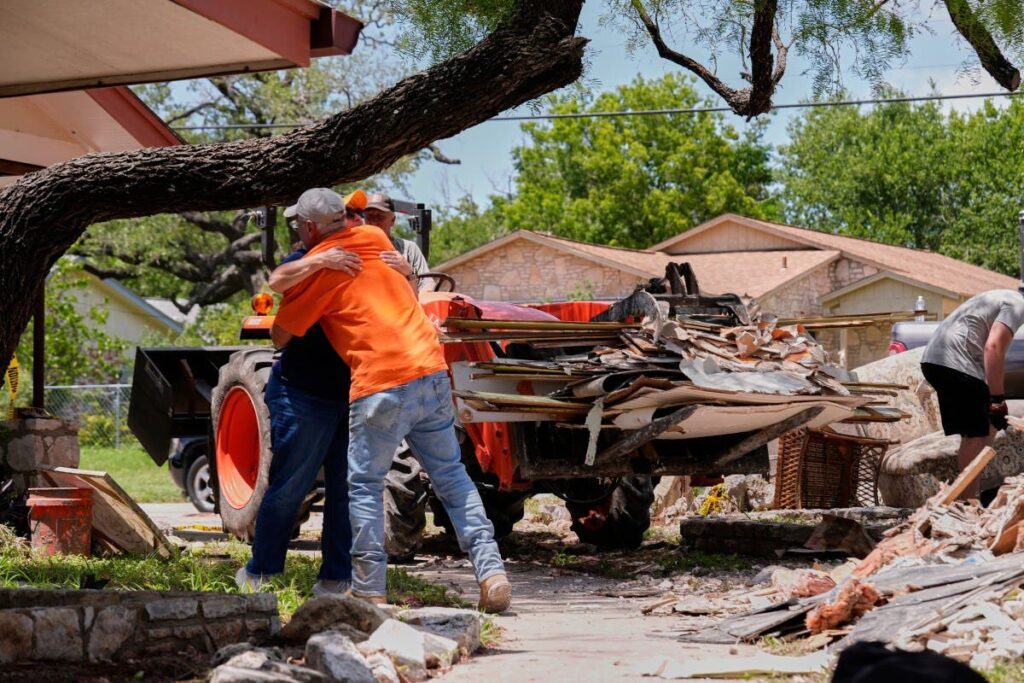State emergency management officials are confronting unprecedented challenges as federal disaster preparedness grants face severe cuts, funding delays tied to litigation, and new population reporting requirements that have halted critical aid distribution.
The Department of Homeland Security (DHS) has implemented new restrictions on federal emergency management funding, prompting confusion among state officials and drawing multiple federal court interventions.
The changes have created significant uncertainty for emergency preparedness operations nationwide.
Newsweek reached out to DHS and Federal Emergency Management Agency (FEMA) via email on Sunday for comment.
Why It Matters
Last week, Senior District Judge William E. Smith rebuked the Trump administration in a Tuesday order, accusing it of violating his previous order and requiring “unlawful” conditions for FEMA grants.
Smith, who was appointed by former Republican President George W. Bush to the District Court for Rhode Island, wrote the new order after previously prohibiting FEMA from conditioning grants to states over their willingness to assist with immigration enforcement efforts.
When Trump took office in January, DHS Secretary Kristi Noem said FEMA funding would come under scrutiny, particularly when it came to spending in Democrat-run cities and states
The funding uncertainty undermines the foundational infrastructure of American disaster response. Emergency management agencies depend on reliable federal support to maintain trained personnel, purchase critical equipment, and conduct preparedness exercises.
When funding freezes or is delayed, agencies struggle to respond quickly and effectively to hurricanes, wildfires, pandemics, and cyberattacks. Smaller local governments and communities that receive grant money through states face the greatest risk, as their budgets and staffs are smaller and less able to absorb disruptions.
Hawaii’s experience is illustrative. The state faces potential delays in contractor payments, project completion, and possible staff furloughs if the grant freeze continues, particularly concerning given the 2023 Maui wildfire that killed more than 100 people and devastated the town of Lahaina.
What To Know
In September, FEMA, which part of the DHS, froze a $320 million Emergency Management Performance Grant after requiring states to resubmit population counts excluding people removed through immigration enforcement—a directive state officials say they have never encountered.
Simultaneously, the Homeland Security Grant Program, which distributes $1 billion annually to states and local emergency responders, underwent a controversial reallocation that reduced some states’ funding by up to 79 percent while providing unexpected increases to other regions. A federal judge in Rhode Island issued a temporary restraining order on September 30, freezing the program pending further court proceedings.
Additional developments have compounded the uncertainty. FEMA reduced the timeframe for spending awarded funds from three years to one year, making longer-term preparedness projects difficult to execute. The Trump administration has suspended a $3.6 billion FEMA disaster resilience program and cut the FEMA workforce itself.
Federal courts have intervened multiple times, with a Manhattan judge ordering DHS to restore $34 million in transit security grants withheld from New York City, and a Rhode Island judge ordering DHS to stop imposing immigration-related grant conditions.
What People Are Saying
Kiele Amundson, Hawaii Emergency Management Agency, said, per the Associated Press: “Every day we remain in this grant purgatory reduces the time available to responsibly and effectively spend these critical funds.”
Trina Sheets, National Emergency Management Association: “This population verification requirement is something we have never seen before. It’s certainly not the responsibility of emergency management to certify population.”
Bryan Koon, former Florida Emergency Management Chief and IEM CEO, said, per the AP: “An interruption in those services could place American lives in jeopardy.”
Department of Homeland Security said new requirements were necessary due to “recent population shifts” and to be “responsive to new and urgent threats facing our nation.”
What Happens Next?
Emergency managers are reassessing their preparedness strategies. Washington State’s Emergency Management Division paused filling certain positions, while states nationwide are exploring ways to reduce reliance on federal funding.
The National Emergency Management Association is advocating for stable, predictable funding streams essential to disaster preparedness planning.
Reporting from the Associated Press contributed to this article.
Read the full article here














